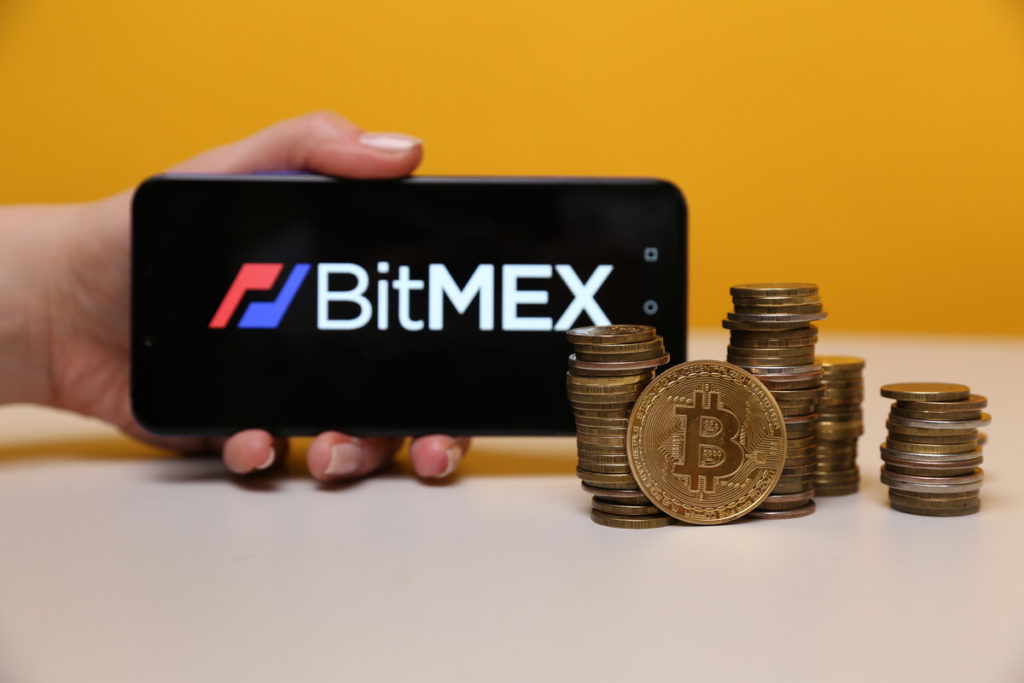
Value of Ethereum Burnt Approaches $7B as Gas Fees Continue to Fall
Although cryptocurrency prices were not immune to the geopolitical risk unfolding between Ukraine and Russia, prices rebounded dramatically from January 2022 lows last week. As volatility plagued the markets, the Ethereum burning mechanism continued to remove ETH coins from circulation and approach the 2 million mark. The burning effect continues to be watched closely by the Ethereum community to see if the mechanism is placing a consistent deflationary pressure on supply. Meanwhile, it was confirmed that El Salvador tourism spiked in the months after adopting Bitcoin and that luxury fashion brands are set to make a big entrance in the metaverse.
- Ethereum blockchain burns nearly 2 million ETH coins as gas prices drop
- El Salvador tourism increases by 30% since BTC adoption
- The first real estate purchase paid in Bitcoin completed in Chile
- Bitmex founders guilty of violating the U.S. Bank Secrecy Act
- Luxury fashion brands enter the metaverse
Ethereum burn rate edges close to 2 million
In August 2021, the Ethereum blockchain implemented Ethereum Improvement Proposal (EIP) 1559, otherwise known as the London hard-fork. As part of the EIP-1559 upgrade, a portion of ETH is now burned during every transaction that occurs on the blockchain. Since then, the Ethereum community has been closely following the impacts that burning ETH may have on the overall ecosystem.
Although implemented to stabilize gas fees, the upgrade also changed the mechanism that distributed gas fees to miners. Instead of distributing all fees to miners, the blockchain introduced a burning mechanism for every transaction that takes place. 7 months after the upgrade, the total number of ETH burnt is now approaching 2 million coins, which is worth over $6.9 billion.
The NFT marketplace, OpenSea, still dominates the on-chain gas-burning mechanism, so far removing over 250,000 ETH coins from circulation. The marketplace is closely followed by standard ETH transfers that are processed within the network and the decentralized exchange, Uniswap.
Although the effects of EIP-1559 were not instantly felt within the network, the price of gas fees has now continuously fallen throughout 2022.
El Salvador tourism soars by 30% after Bitcoin adoption
According to the Salvadoran government, after El Salvador made Bitcoin legal tender in September 2021, the country has enjoyed a 30% increase in tourism. Government officials have attributed the increase purely to the intrigue of cryptocurrencies.
During an interview conducted with El Salvador News English, Tourism Minister, Morena Valdez said, “We did a poll to check the activity according to before and after the adoption of Bitcoin. The tourism sector increased in November and December. It increased by more than 30%.” According to Valdez, 1.4 million visitors entered the country which surpassed the expected 1.1 million.
Continuing, Valdez said, “cryptocurrencies multiply the opportunities to do business with more partners anywhere in the world.” The Tourism Minister then theorized that the push for Bitcoin is an intriguing factor for most foreign visitors.
During the same week, the country’s President, Nayib Bukele, issued a tweet stating that El Salvador had experienced a double-digit GDP growth for 2021. With an increase of 10.3%, Bukele was quick to remind his followers that it is the first time in history that the country has experienced double-digit growth. The President later announced that the country had also launched its first veterinary hospital funded entirely by Bitcoin.
First real estate purchase using Bitcoin completed in Chile
According to global real estate firm, Remax, the first real estate purchase completed using Bitcoin in Chile has been finalized. The news was confirmed by Yuval Ben Haym, the regional manager of Remax, during an interview with a local media provider.
Ben Haym announced that the purchase was completed in November 2021 and involved a plot of land in Temuco, a city in the south of Chile. The regional manager was optimistic that Bitcoin and other cryptocurrencies would become more popular for similar monetary transfers as time progresses. “From this time to the future several properties will be able to be paid with this new means of payment.”
Although a potential first for Bitcoin, the purchase in Chile is not the first time that cryptocurrencies have been used to acquire real estate within Latin America. Last year, a Venezuelan resident purchased an apartment using Tether (USDT), and earlier in February, a Bitcoin real estate purchase was confirmed in Colombia. The transaction was completed using the layer-2 Lightning Network.
BitMEX founders guilty of violating the U.S. Bank Secrecy Act
According to a report published by the U.S. Department of Justice (DOJ) on Thursday, the founders of BitMEX, a global cryptocurrency derivatives exchange, have pled guilty to violating the Bank Secrecy Act (BSA). As stated by the DOJ, “Arthur Hayes and Benjamin Delo designed Bitmex as a platform to flaunt U.S. anti-money laundering rules.”
From September 2015 until the pair’s indictment in September 2020, Hayes and Delo failed to implement and maintain any anti-money laundering policies, which involved capturing Know-Your-Customer (KYC) information. The DOJ report continued, “as a result of its willful failure to implement AML and KYC programs, BitMEX was in effect a money-laundering platform.”
Speaking on the matter, U.S. Attorney Damian Williams said, “As cryptocurrencies and technologies designed to facilitate their trade proliferate, companies engaged in the virtual currency economy have become critical gatekeepers in efforts to ensure that U.S. markets are fair, efficient, and secure.” Hayes and Delo have each agreed to pay $10 million as part of the terms of their plea agreement.
The latest news from BitMEX illustrates the necessity of using a regulated and authorized cryptocurrency exchange such as Xcoins.

‘Metaverse Fashion Week’ confirmed by Decentraland
Decentraland, a blockchain-based metaverse protocol, has confirmed that it will be hosting a fashion week at the end of March 2022. Scheduled for March 24-27, the event is set to involve digital wearables, virtual runways, and afterparties.
Officially named “Metaverse Fashion Week” the event will be publicly available for all those that wish to enter the Decentraland virtual world. Global fashion brands are required to purchase land within the virtual world to facilitate shows, concerts, and parties. According to Decentraland, the event has already confirmed attendance from Vogue Arabia, Elie Saab, Guo Pei, Etro, Jacob & Co, Dolce & Gabbana, Selfridges, Tommy Hilfiger, Fewocious, Dundas, Cavalli, Paco Rabanne, Hogan, Franck Muller, Garrett Leight, Cavalli, and The Fabricant.
Speaking on the announcement, Sam Hamilton, Decentraland Foundation’s Creative Director said in a statement that “fashion and haute couture are not new to the metaverse. Decentraland has been on the cutting edge of rare and in-demand digital fashion since the launch of avatar wearables in 2020. Since that time, creators have been pushing both the technical and stylistic limits of Decentraland wearables, and have created a booming economy with over $1 million in sales of avatar wearables last year.”
The event is set to begin with the luxury London retailer, Selfridges, opening a brand new store within the metaverse world. All fashion week participants are then set to congregate within Decentraland’s latest district known as “Luxury Fashion District.”

To stay up to date on all things crypto, like Xcoins on Facebook, and follow us on Twitter, Instagram, and LinkedIn.

